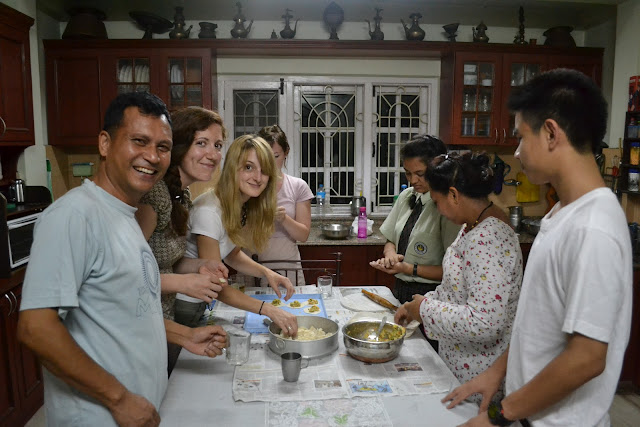I've just got back from my second trip to our South Africa office this year. In April, I was mapping opportunities to expand our advocacy and policy influence work. But this time I was there to support our team to design an ICS (International Citizen Service) programme to develop the skills of young people to access formal employment as well as develop their own businesses through entrepreneurship training.
Programme Design is an area of my job that I really enjoy but it's not always easy to explain what actually goes into designing a programme for international development, so I thought the last week in South Africa might be a kind of case study to explain a little more (and hopefully dispel any rumours that I'm just on a non-stop holiday!)
Most of the best programmes I've come across are based on a "needs assessment" - which pretty much does what it say on the tin. So in the case of our programme in South Africa, before I arrived our programmes team visited various communities in the Eastern Cape and spoke to groups of young people, as well as getting them to fill out questionnaires, to identify some of the challenges they face and what their most pressing needs are. The findings showed that in many cases, young people are unable to contribute to their household income as they have no means of earning a living - whether it be through employment or self-employment.
These findings formed the next stage of the programme design process - problem analysis. This is a really simple process which involves writing the problem in the middle of a big flipchart (post-its optional but I'm trying to cut back on my addiction...) and then identifying the many possible causes of that problem as well as the consequences. So in the case of the problem of young people not contributing to their household income, some of the causes identified included high unemployment rate, lack of entrepreneurship skills training, a mismatch between the education system and the jobs market, policy barriers, family caring responsibilities, lack of access to grants and loans to start up businesses etc etc. Whereas consequences included a cycle of poverty, higher crime levels and other anti-social behaviour and even higher pregnancy rates.
With the problem "tree" done, it's simply a case of turning it into a "solution tree" so that we're looking at the situation we want to have rather than the one we've got. Nothing like a bit of positive thinking! So eventually you end up with something a bit like this...

Once all the possible causes and consequences have been mapped, the next stage is to identify which of the causes we want to address through our ICS programme. As much fun as it would be to do this like a game of "pin the tail on the donkey", selection is a bit less random than that and usually involves some kind of criteria. The first part of this process is to consider the causes on a scale of influence. So, although significant, we determined that causes such as the high unemployment rate were simply so huge that we as an organisation could have little influence over them. The next stage is to look at the "fit" between Restless Development's goals and the causes. So in the case of the mismatch between the education system and employment market, we decided it didn't fall under our organisation's focus/remit as we do not work in formal education. Finally, we needed to consider the skill set of the young volunteers from the UK and South Africa who will be delivering the programme as well as the duration of each cycle of volunteers. So in the case of policy influence, although it's an area we do work on at Restless Development, we determined that young volunteers working on 3 month short term projects may not have the skills or time needed to actually influence policies. However, delivering peer education sessions in employment skills (CV writing, interview skills, how to fill out an application form) and entrepreneurship skills (how to write a business plan, financial management etc) is not only a good fit with our strengths as an organisation but suitable for cycles of young volunteers to build on one another resulting in a cumulative impact. We also recognised that our volunteers would be well placed to organise community events to raise the awareness of young people about employment opportunities and ways to access support when setting up a business.
Having identified the main focus of the programme, it was basically a case of fleshing it out by developing packages of activities that make up the programme - literally modelling the programme into something that is clear and structured. In the case of South Africa, this is shown in the flip chart on the left below.
Finally (on the right above, we mapped out what the programme would look like in practical terms such as where volunteers will be living (in host families in communities) and delivering activities (high schools and youth resource centres) as well as how we can staff the whole programme. My next job is to turn this into something that doesn't look like a scribbled mess but it's basically all there!
 |
| Putting the plan into practical terms |
So. We have a plan. But it's just the start. And with the first cycle of volunteers arriving in South Africa in 4 months, there's still lots to do. During the rest of the week we mapped out a programme development timeline that means we have a plan for every week between now and then. But don't worry, I'm not that mean - blogs are no place for excel spreadsheets!

















































